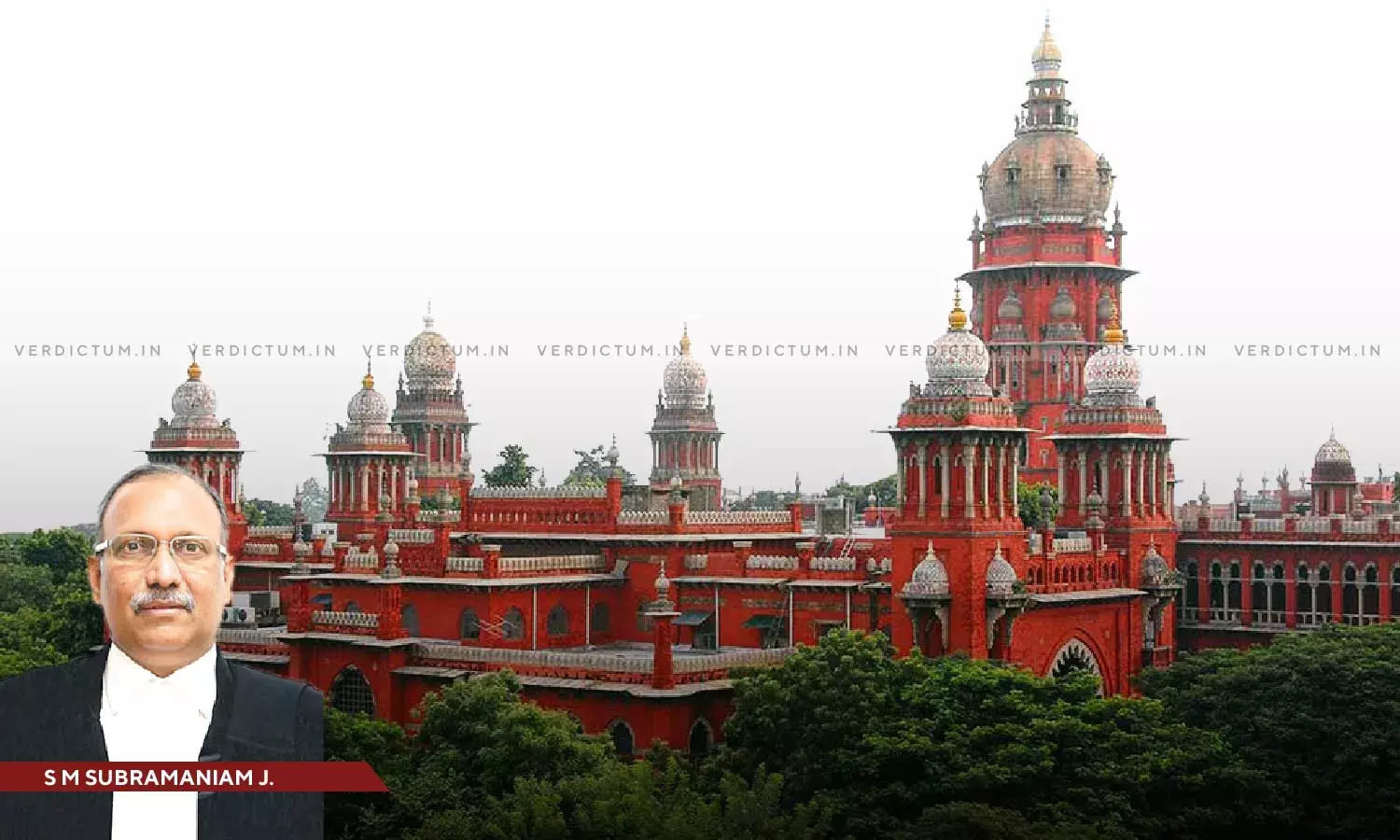On Excessive Exercise Of Power By Authorities, Appropriate Action Must Be Taken: Madras HC Issues Directions For Tamil Nadu Govt

The Madras High Court disposing of the writ petition has directed the Tamil Nadu government to issue a circular to the competent authorities to exercise their powers in accordance with the Statute or the Rules in force and any excessive exercise of power is to be construed as lapses, negligence, and administration malfunction.
The bench of Justice S M Subramaniam observed that in the event of excessive exercise of powers, such authorities must be liable for prosecution under the Discipline and Appeal Rules and held that "the nature of improper or excessive exercise of powers by the Authorities must be enquired into and accordingly appropriate actions are to be initiated against them."
In this case, the petitioner was a Police Sub-Inspector who had been removed from service in 2016 for alleged lapse in her duty. The petitioner claimed that when she filed representation/objections to the order for her compulsory retirement, none of the grounds raised by her had been considered by the Disciplinary Authority. It was further alleged that the Appellate Authority has equally committed a mistake by passing a non-speaking order and moreover, the petitioner had also been denied the remedy of revision under the Tamil Nadu Police Subordinate Services (Discipline and Appeal) Rules, 1955.
Senior Advocate K. Venkataramani appeared on behalf of the petitioner and Additional Government Pleader B. Vijay appeared on behalf of the respondent.
The Court disposed of the Writ petition and observed that it is essential that the Authority should exercise its powers within the limits of the Statute or the Rules, otherwise it would be ultra vires on the ground of abuse or excess of jurisdiction.
The Court further observed that the excess exercise or improper exercise of powers would lead to colourable exercise of power, resulting in unconstitutionality and said that "When the power is exercised under 'colour' or guise of legality, but, in reality the purpose of Statute is different, it amounts to 'colourable' exercise of power."
The Court also observed that the exercise of power, which is not made available under the Statute or the Rules, amounts to lapses, negligence and the powers, which all are not contemplated, if allowed to be exercised, it will lead to maladministration and the discipline of the Force will be derailed.
The Court further expressed that if there is any abuse or excessive exercise of powers, the Government is bound to exercise its powers of judicial review not only to correct the order, but also to initiate appropriate actions against the Authorities, who had excessively or improperly ex ercised the powers or otherwise.
Accordingly, the Court disposed of the writ petition granting her liberty to approach the Revisional Authority in the prescribed format in accordance with the Rules in force as the petitioner has already exhausted the appellate Remedy.
cause title- Prasanna Gunasundari v. The Deputy Inspector General of Police, Madurai & 3 others
Click here to read/download the Judgment

